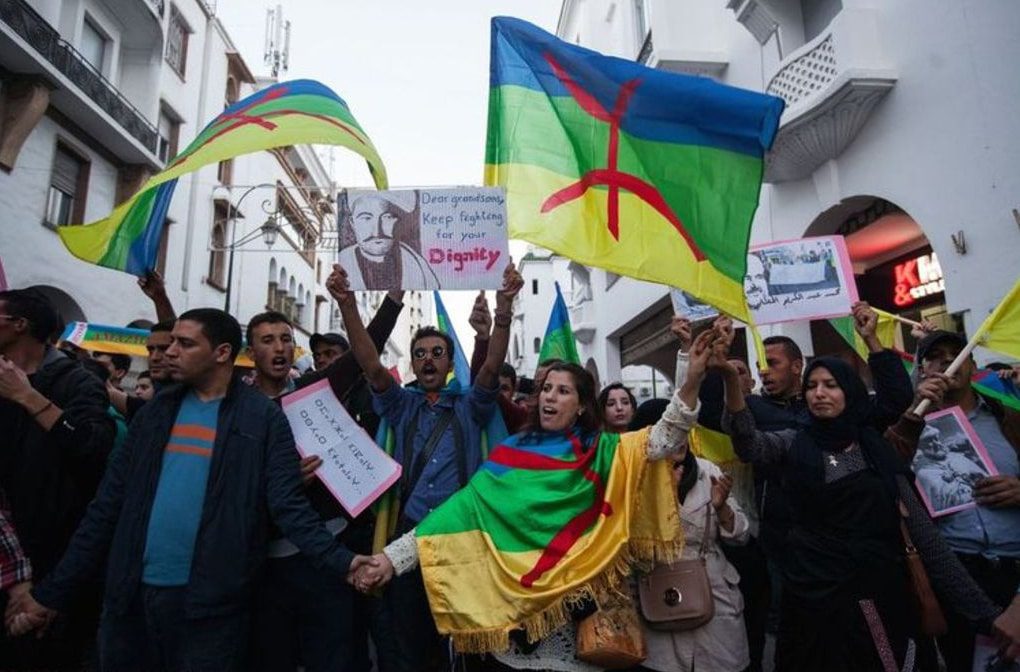
Protests have erupted across Morocco over the death of a fish seller, who was crushed to death in a rubbish truck. Mouhcine Fikri, 31, was killed on 28 October 2016 in the northern city of al-Hoceima, after climbing into the truck to retrieve 500 kg of confiscated swordfish, which are subject to a fishing ban at this time of year.
His death in the Rif, an ethnically Berber region that has a long history of political dissent, also triggered anger elsewhere in the country including the capital Rabat. The protests were the biggest since the ‘ Arab Spring ’ uprisings in 2011. Slogans ranged from ‘Here we crush people’ and ‘Stop hogra ’ (extreme humiliation), to ‘Criminals, murderers, terrorists’ and ‘The sons of the Rif reject barbarism’.
Protestors were shocked by the circumstances surrounding Fikri’s death, which was filmed on a mobile phone and posted online. An image of the lifeless victim’s head and arm protruding from the truck’s compacting mechanism went viral.
Thousands of people attended Fikri’s funeral, walking for hours from al-Hoceima to the village of Imzouren, where he was buried. Marchers led the procession bearing Amazigh (Berber) flags and demanding justice for “martyr Mouhcine”. Of all the slogans, it was ‘Stop hogra’ that captured the public imagination. Demonstrations were held in more than 22 cities and towns all over Morocco and were widely reported in the international media.
Fikri’s gruesome death was seen as a clear violation of the universal right to life. It was also seen as a violation of Article 22 of the 2011 Moroccan constitution, according to which a person’s physical or moral security cannot be touched under any circumstance and by anyone, private or public.
Eleven people were arrested on suspicion of involuntary manslaughter. Two fisheries officials and the head of the local veterinary services were among those arrested, according to a prosecution statement.
The Association of Human Rights in Morocco has registered an increase in human rights violations in recent years. A member of the association, Abd al-Ilah bin Abdeslam, compared the government’s inquiry into the case to dozens of other inquiries which have been opened but never settled.
Four conclusions can be drawn from the incident, according to a university professor. First, the fact that people decided to take to the streets without the support of a political party or syndicate indicates that a wall of fear has fallen, which is a deep transformation in Moroccan society.
Second, traditional parties and syndicates no longer contain people’s anger. Protestors were directly challenging the dynamics of territorial administration. Third, social media plays a powerful role in mobilizing people. And fourth, there is a feeling that the public sphere has become a freer space for expression.
The tragedy also elicited opposing positions from the main political rivals: the Islamist PJD and the pro-monarchy PAM. While the PJD and winner of the general elections on 7 October 2016 appealed for calm, the PAM, which came in second, demanded that those directly and indirectly responsible for the death be brought to justice. The president of PAM, who is from al-Hoceima where the fish seller was killed, also used the opportunity to underline the marginalization of the Rif region and encouraged PAM supporters to stage a peaceful protest. Reactions to these positions were divided between those who accused Prime Minister Abdelilah Benkirane of betraying the people and those who warned against politicizing the event.
Nevertheless, many political leaders demonstrated in Rabat on 30 October 2016. Among them was Mohamed Ziani, leader of the Constitutional Union party, who compared Fikri’s death to Muammar Qaddafi or Saddam Hussein’s style of barbaric executions.
King Mohammed VI, in Tanzania at the time on a major diplomatic tour of Eastern Africa, sent Interior Minister Mohamed Hassad to al-Hoceima “to present the condolences and sympathy of the sovereign to the family of the deceased”.
The king also gave instructions “for a careful and thorough investigation to be conducted”. The Interior Ministry had already announced the opening of an investigation, together with the local prosecutor, the day after the event.
Minister Assad said he was “determined to establish the exact circumstances of the tragedy and to punish those responsible”. The victim had allegedly ignored a police checkpoint, and had subsequently been stopped with “a significant amount of swordfish, a species closed to fishing, in his car,” the minister said. “It was decided to destroy the illegal goods. All the questions arise after that.”


